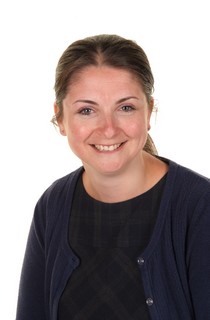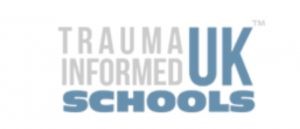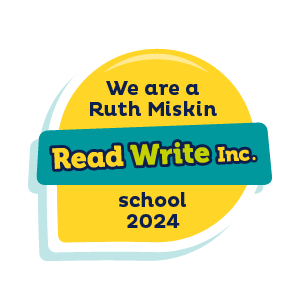SEND
Contact Information:
Contact Name – Mrs S Dunn
Contact Telephone – 01642 454339
Contact Email –sdunn@whalehill.steelriver.org.uk
Local Offer Age Bands – Primary Age 4 – 11 Years
SEN Provision Type – Universal

- All schools in Steel River Academy Trust, are an open, supportive and work as a professional team who are committed to ensuring that every child succeeds. We all aim to create a positive atmosphere of trust, mutual respect and high expectations between pupils, staff, parents/carers and other professionals.
- We have high academic/vocational and technical ambition for all pupils and our SEND children will not be offered a reduced curriculum.
- We are determined to ensure that we provide a happy, safe and calm environment where children behave well and develop into confident, creative and independent learners.
- Steel River schools aim to ensure that all children’s individual needs are met so that they are able to achieve their educational potential and are committed to providing, for each pupil, the best possible environment for learning.
- We believe that wherever possible, children have an equal right to an inclusive education which enables them to fully develop their personal, social and intellectual potential and to experience success every single day. We understand the importance of targeted, appropriate intervention to promote achievement.
- We recognise that many pupils will have special needs at some time during their school life. In implementing this policy, we believe pupils will be helped to overcome their difficulties. In our schools, every teacher is a teacher of every child, including those with special educational needs.
Whale Hill Offer
It is our belief that all children have an equal right to a broad and balanced education which will enable them to achieve their full potential. We use our best endeavours to secure special educational provision for pupils for whom this is required, that is ‘additional to and different from’ that is provided within the differentiated curriculum to better respond to the four areas of need identified in the SEND Code of Practice.
How we identify the needs of our Children
We aim to identify any specific needs as soon as possible. This may be identified due to factors such as changes in behaviour, limited progress or concerns raised by pupils, parents or carers, Doctors, Health Care Workers or Social Workers. If you feel your child may have Special Educational Needs, speak to the class teacher or SENDCO regarding your concerns.
All relevant adults and professionals are involved in the identification of needs and the planning involved in addressing needs. Where appropriate, children are also encouraged to participate in all the decision-making processes and contribute to the assessment of their need, review and any transition process.
If a child is identified as having additional needs, a number of steps may be taken. First and foremost, the classroom teacher will develop a graduated response to the child’s needs. This may be a targeted intervention to support the development of skills, the intervention very much depends on the needs of the child. If it is felt that a child has been supported by a graduated approach but continues to need additional support, a referral to an outside agency would be made. This could mean a possible referral to an Educational Psychologist, the Specialist Teaching Service, Speech and Language Therapists and more. Parents are fully involved in any decision making process and meet regularly with class teachers and the school SENDCO to discuss the provision their child is accessing or needs to access. All provisions are monitored and recorded on a Provision Map.
Parental Involvement in the Planning Process
We operate an ‘open door’ policy for all parents if they should have any concerns about their children and they are able to see their class teacher, the Parent Support Advisor, members of the Senior Leadership Team and the Head Teacher upon request. Parents are fully involved in any decision making process and meet regularly with class teachers and the school SENDCO to discuss the provision their child is accessing or needs to access
How we will support your child in school
All staff at Whale Hill are responsible for the teaching and monitoring of children with SEN. The classroom teacher will take the main responsibility for the daily provision for your child, offering high quality teaching with challenging and attainable targets. The teacher will be supported and advised by the school SENDCO where necessary. The teacher will discuss with you any additional support that they think is needed in order to help your child progress with their learning. If necessary, they will then write an ‘Individual Education Plan’ with clear, achievable targets for your child, which will be developed with you and your child. If school thinks that advice is needed from any outside specialist services such as the Speech and Language Therapist Team or an Educational Psychologist, then the class teacher or the SENDCO will discuss this with you and seek your permission to proceed. They will then keep you informed and invite you to any scheduled meetings where you can express your opinion on our children’s development in school.
SEN Support
Where it is deemed that a pupil does have SEND, parents will be formally advised of this decision, and the pupil will be added to the SEND register. The aim of formally identifying a pupil with SEND is to help school to ensure that effective provision is put in place and so remove barriers to learning. The support provided consists of a four-part process:
Assess
Plan
Do
Review
This is an ongoing cycle to enable the provision to be refined and revised as the understanding of the needs of the pupil grows.
Assess
This involves clearly analysing the pupil’s needs using the class teachers assessment and experience of working with the pupil, details of previous progress and attainment, comparisons with peers and national data, as well as the views and experience of the parents. The pupil’s views and where relevant advice from external support services will be considered. Any parental concerns will be noted and compared with the school’s information and assessment data on how the pupil is progressing.
Plan
Planning will involve consultation between the teacher, the SENCO and parents to agree the adjustments, interventions and support that are required. The impact on progress, development and or behaviour, that is expected and a clear date for review. Parental involvement may be sought, where appropriate, to reinforce or contribute to progress at home. All those working with the pupil, including support staff will be informed of their individual needs, the support that is being provided, any particular teaching strategies/ approaches that are being employed and the outcomes that are being sought.
Do
The class teacher remains responsible for working with the child on a day to day basis. They will retain responsibility even where the interventions may involve group or one to one teaching away from the main class teacher. They will work closely with teaching assistants and to plan and assess the impact of support and interventions and links with classroom teaching. Support with further assessment of the pupil’s strengths and weaknesses, problem solving and advising of the implementation of effective support will be provided by the SENCO.
Review
Reviews of a child’s progress will be sought regularly. The review process will evaluate the impact and quality of the support and interventions. It will also take account of the views of the pupil and where necessary their parents. The class teacher in conjunction with the SENCO will revise the support and outcomes based on the pupil’s progress and development making necessary amendments going forward, in consultation with parents and the pupil.
Education Health Care Plan (EHC Plan) – formally known as ‘Statements’
If a child is not making progress despite following the graduated response of Assess, Plan, Do, Review (including targeted support and the advice of outside professionals) it may be necessary to move onto the next stage and to make an application for statutory assessment for an Education Health Care Plan (EHCP). Parents/carers will be consulted throughout the process, and the child’s views will be sought if appropriate.
The EHC assessment takes up to 20 weeks and could result in the child being issued with an Education Health Care Plan (EHCP). This is a legal document and it usually means that a child requires a higher level of support which would not ordinarily be provided from the basic funding made available to the school.
Managing Pupils’ Needs on the SEN Register
Children’s needs are recorded and managed in a number of ways:
- SEND register;
- SEND as a user defined group on SIMS to monitor progress;
- SEN Support Plans and EHC Plans;
- Measure of progress for interventions groups;
- Formal SEND reviews three times per year;
- SENCO provides support for all teaching staff.
Teachers are responsible and accountable for writing, and updating, SEN Support Plans working in partnership with parents/carers and other agencies. This is overseen by the SENCO. The SENCO is responsible for co-ordinating the EHC Plan reviews.
The SEND budget will be managed effectively by the Head teacher and SEND link governor in order to provide appropriate additional support. The SEND link governor will report progress to the governing body and Ofsted.
How we decide upon the level of provision and the referral process is detailed in the SEND Information Report. This report is available and published on the school website. This document is available in alternative forms.
A range of agreed Local Authority documentation will be completed as appropriate, such as SARF, EHAS.
Supporting Pupils with Medical Conditions
Steel River Academy Trust recognises that pupils at all of our schools with medical conditions should be properly supported so that they have full access to education, including school trips and physical education. Some children with medical conditions may be disabled and where this is the case the school will comply with its duties under the Equality Act 2010. The school fully complies with the DfE guidance on Supporting Pupils with Medical Conditions. Please refer to the Managing the Medical Conditions of Pupils policy which is available on each of our school’s websites.
Transition
All schools within the Steel River Academy Trust will prepare for a child’s transition to a new class, school or setting. Within the trust, each school will undertake a transitional week at the end of the academic year. This is an opportunity for the children to experience the new routines and to form positive relationships with the staff members they will be working with. Where additional support is needed for transition, each school will assess the needs of the child and offer a personalised transitional package. This may include an enhanced transitional visits with new class teachers, counselling or therapy groups, regular meetings with teachers or a pupil passport.
Throughout the transitional periods, children with communication and interaction barriers are considered carefully, particularly those with Autism Spectrum Disorder (ASD). In some cases, an individual school may sought support from external services such as the Specialist Teaching Service.
When a SEND child is transitioning from a primary setting to a secondary setting, the SENCO of each school will make contact with the appropriate Year 7 manager or SENCO of the new setting. Although secondary schools offer slightly different transitional packages, each school within the trust will share relevant SEND information and inform the new setting of the child’s history.
Overall Well-being
Whale Hill is proud to offer many services to support the emotional wellbeing of our young people. ELSA is a service delivered by trained members of staff within the school to support the emotional and well-being of our children. Four members of staff have achieved ELSA training and are now delivering small group and individual ELSA sessions to support children’s emotional literacy in school.

Jigsaw PSHE is embedded within the curriculum at Whale Hill. This programme offers a mindfulness approach to supporting children with their person, social and health education.

Whale Hill are also working with Headstart South Tees to support children in school with mental health, from this, mental class health champions are allocated and support mental health activities across school.

Whale Hill are developing a Trauma Informed Approach to supporting all children in school.

Specialist Services
There are a range of agencies who work with our school. These include: the Education Psychology Service (EPS); the Learning Support Service (LSS); Autism Specialist Team (AST); Child and Adolescent Mental Health Service (CAMHS); Speech and Language Therapy Service; Hearing Impaired Service (HIS); English as an Additional Language Service (EALS); the School Nursing Team; Physiotherapy; Social Services; Counselling services and Occupational Therapy and more.
How we support our parents
Parents attend termly consultations during which they have the opportunity to look at their children’s work, gain an understanding of their child’s targets and any SEN Support plans or provision maps are discussed. In addition to this, reports are completed and sent out to parents twice a year. If teachers have any concerns, they are shared with parents immediately through a meeting, along with the Parent Support Advisor. During this meeting a discussion takes place and an agreement of how to move forward is made.
How we support our staff
All staff engage in weekly professional development meetings that focus on areas such as developing teaching strategies, behaviour/emotional needs, supporting those that have experienced bereavement, Special Educational Needs, monitoring and tracking, assessment, Safeguarding, Prevent Training and interventions.
Accessibility
Our school is wheelchair friendly. We have wide doors and double doors as well as ramps to access the main school building and a portable ramp to access the nursery. In addition to this, we have a disabled toilet and access to changing facilities.
Further Information
Support for children with Special Educational Needs is a matter for the school as a whole. Additionally and when required, we offer an Outreach Support Programme, Counselling and School Nurse Engagement that can be tailored to meet the needs of different children. This often results in external teams visiting schools, when required, to work with individuals or groups of children. This is managed by the Head Teacher and the SENDCO.
If further support is required initially the Class Teacher is consulted. If further support is required this will be discussed with the SENDCO and the Head Teacher. If further support is required by alternative external agencies it is the responsibility of the SENDCO to arrange and coordinate accordingly.
For further information on Redcar and Cleveland’s Local Offer and Services for children and young people with special educational needs (SEN) and/or disabilities, please click here






